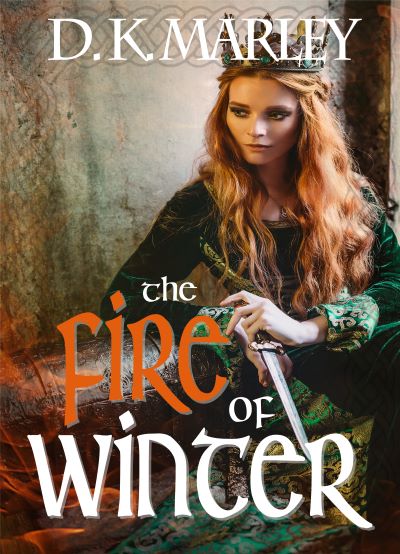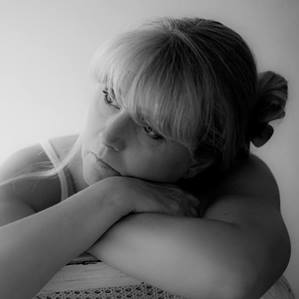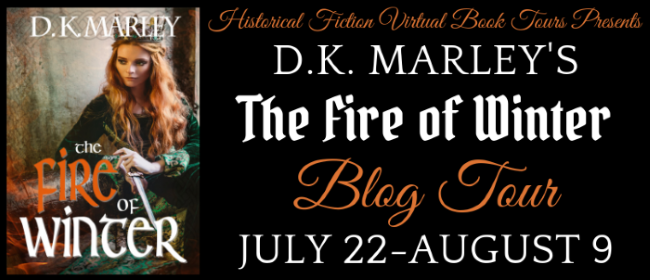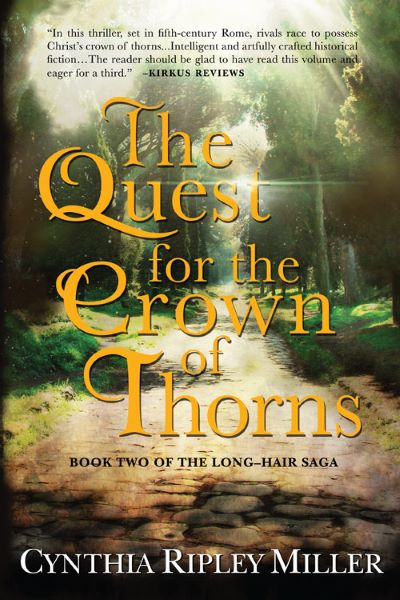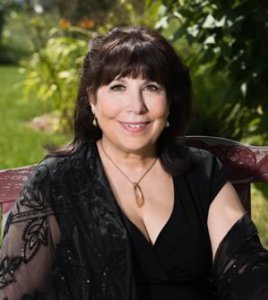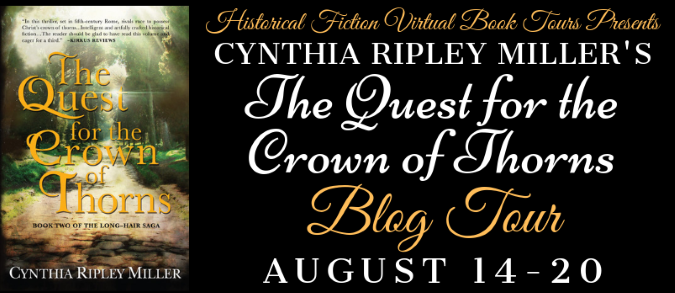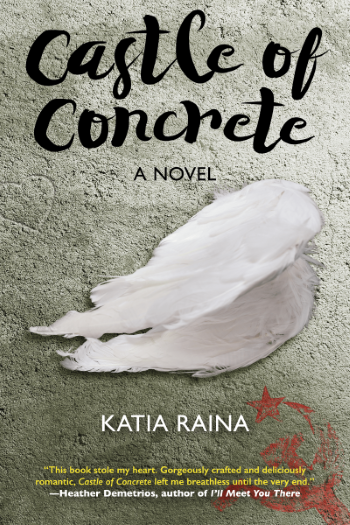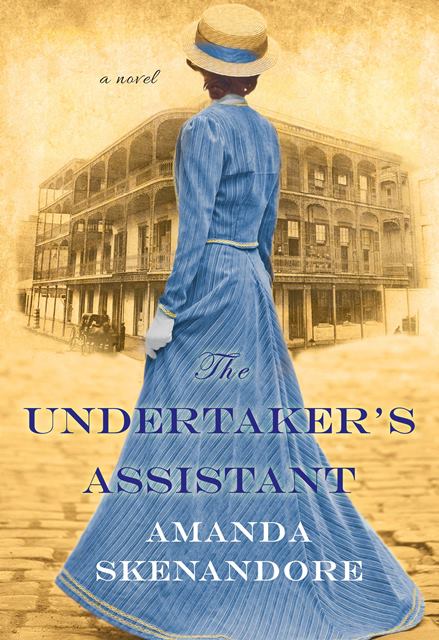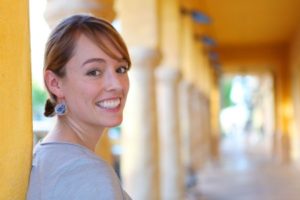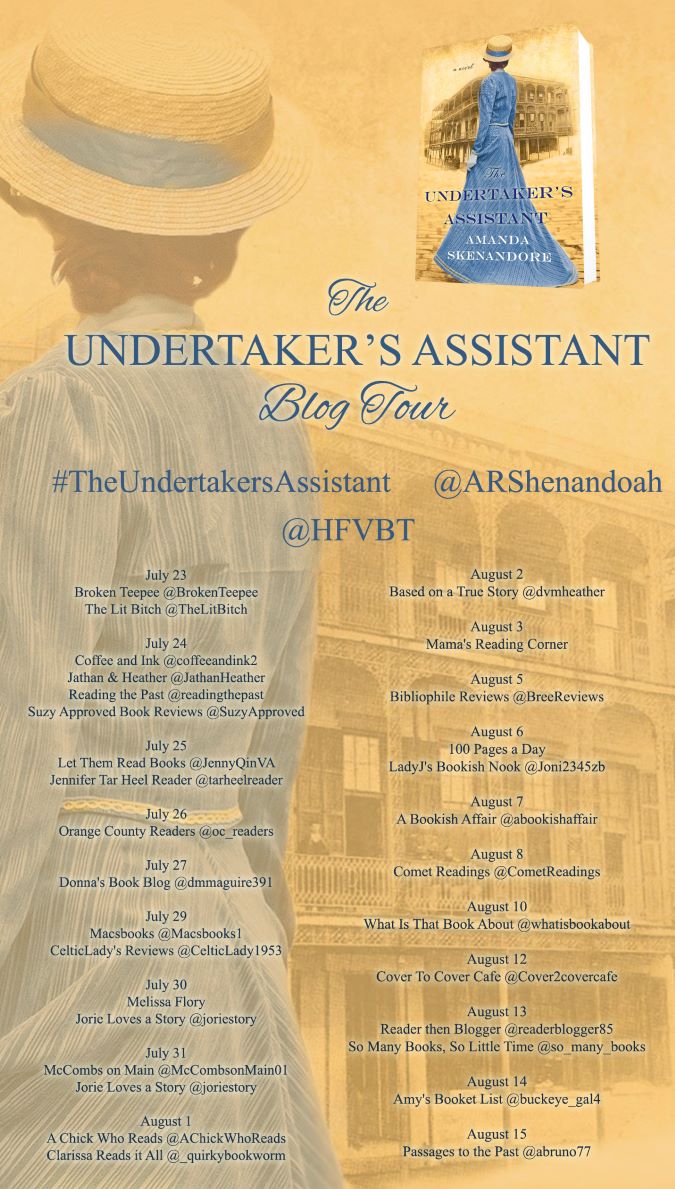Happy Monday, everyone! It's a wonderfully busy day here at Passages to the Past today! First up I am super excited to share my interview with Katia Raina, author of Castle of Concrete. You can check out my review
here, and don't forget to enter our giveaway for a copy of the book!
Hello Katia and welcome to Passages to the Past! Thanks so much for stopping by today to talk about Castle of Concrete!
To begin, can you please tell us a little about yourself and your writing?
Thank you for having me here, Amy! I was born in the Ukraine and grew up in Russia, both of which were one country back then, the Soviet Union. I came to NYC with my family at the age of almost-16 and loved it at first sight. Before I started writing fiction, I was a journalist, then I became a teacher. I got my dream MFA degree in Writing for Children and Teenagers from the incredible Vermont College of Fine Arts. I am about to go back to work as a sixth-grade teacher in DC. I adore my family. Life is good!
What inspired you to write Castle of Concrete?
As sometimes happens with first novels/manuscripts, which Castle of Concrete was for me, a lot of it was informed by my own childhood and teen experiences growing up in Russia, falling in and out of love, and yes, experiencing anti-Semitism while the people making the jokes and saying the hurtful words were completely oblivious to the pain they were causing.
What research did you undertake when writing Castle of Concrete?
Even though my memory was rich with details: what it was like to go to a school near Moscow or to visit the first ever McDonalds in the Russian capital, I still did lots and lots of exciting research. I read non-fiction about the late 80s and early 90s in Russia and the collapse of the Soviet Union. I read old newspapers and re-immersed myself in anti-communist jokes and all sorts of old songs. But my favorite part, by far, was visiting Russia again after I finished the first draft of Castle of Concrete. Notebook in hand, I made it a point to go to every place that was featured in the manuscript so far: I rode the metro train, attended a circus performance and wandered around some construction sites in the town of my adolescence. I even sneaked onto a cross-country train and looked over the cabin! I recorded everything I saw, heard, felt and smelled.
What would you like readers to take away from reading Castle of Concrete?
In some ways, I don’t know! I am fascinated and excited to see what readers do take away, how they react, what they especially respond to. I’ve gotten a lot of strong responses so far, some negative, but many positive, and for each of these I am grateful, yes, even for the negative ones, because it’s good to see people engage so passionately with the world of my story and my characters. I didn’t write Castle of Concrete so much with a message in mind. It was more of a mirror: this is how messy we human beings are, and this is how hard it is to grow up in this complicated world we live in. In Castle of Concrete I wanted to explore: why do people hate each other based on religion, heritage, history? Where does bigotry come from? Can it be cured? I hope the readers will come away with their own answers to these questions, and maybe ask some more.
What was your favorite scene to write?
Without getting too specific for the fear of spoiling, my favorite scenes to write were the most dramatic and tension-filled ones! They were also the heart-wrenching ones. The ones filled with pain, and hate, and anger. One of these scenes takes place at a certain demonstration, one that my protagonist Sonya is misguidedly excited about attending… at first, anyway. Until she learns what sort of demonstration it really is. The other comes from the climax, another demonstration scene, actually. Hmm, I am seeing a pattern here! I think the reason these two very different organized protest scenes were my favorite to write was because it didn’t feel like I was writing them, I was just there, among the protesters, riding the emotion, hard as it got at times, experiencing the danger.
What was the most difficult scene to write?
Without saying too much – and I mean it this time! -- I will just share this: it was a scene set on a beautiful summer afternoon in the Ukraine, before a plaque-less memorial, one that involved dashed hope, lack of empathy, Holocaust denial and a broken heart.
When did you know you wanted to be a writer?
I have a classic answer to this: I have started writing and storytelling when I was a kid. Endless doodles and fairytales, endless walks during which I entertained myself with all sorts of made-up drama. Then, in my early twenties, after I took time off from journalism to care for my son full-time, I decided to pursue creative writing more seriously.
What does your daily writing routine look like?
During the school year, I wake up at 4 in the morning and write for one hour. That’s all the time I have for that. Then I journal a little, to settle the thoughts in my head and ready for the day. Then it’s time for coffee and the day begins!
What has been your greatest challenge as a writer? Have you been able to overcome it?
Perfectionism. I question myself too much sometimes. Okay, often. I revise endlessly. I am still working on that, and maybe I will always be, but I do think I am getting better. I have devised my writing process around the idea of letting a story go after a few revisions, and then moving on. It either works, or it doesn’t. I can’t take 15 years for every book!
Who are your writing inspirations?
First, I would say Ray Bradbury. His short stories – referenced in Castle of Concrete -- and his Martian Chronicles just opened my mind wide to the fantastical possibilities that exist in the Universe, and in our world, in our life, right here, before us. And even though I don’t write science fiction – yet – one day I do hope to tackle it! I also love Elizabeth Gilbert’s philosophy on writing and on creative living: her Big Magic has in many ways helped me battle my perfectionism and just take it easy and have more fun as a writer. In this book, she talks about the importance of hard work, “nothing more than unglamorous, disciplined labor.” And at the same time, she recognizes that there is a magic to writing, and to living, as well. A light and playful quality. Finally, the Vermont College of Fine Arts Writing for Children and Young Adults Program. All the incredible, renowned faculty, the brilliant students and fellow alumni: they taught me so much about writing with courage, wildness and honesty.
What was the first historical novel you read?
The Three Musketeers by Alexandre Dumas, written in 1844 and set in the 1620s in Paris. At the age of 11 or so, the politics and the church abuses did not interest me as much as the adventure and the forbidden romance of the brave and dashing D’Artagnan and his beloved Constance. Maybe that was the book that hooked me on romance!
What is the last historical novel you read?
Refuge by Alan Gratz is a historical middle grade novel, told from three distinct points of view: a German Jewish boy trying to escape with his family during the times leading up to the Holocaust, a Cuban girl in the early 1990s also making her way out with her family through all sorts of danger, and a young Syrian refugee in 2015. What a powerful, important tale of connections between the displaced persons in different times and places, the ties between them intertwining. Everyone needs to read it!
What are three things people may not know about you?
In no special order: The first story I ever wrote as a local newspaper reporter, first day on the job, was about poop in the municipal pool. I married my husband right out of high school. I am terrified of moths!
What appeals to you most about your chosen genre?
I love how historical novels reflect the issues, the drama and the questions we grapple with in our current times. Historical fiction allows us to learn about distant times and places in a way that really sticks through the characters we fall for and root for.
What historical time period do you gravitate towards the most with your personal reading?
I don’t read by historical eras – or by genres. Be it recent history, ancient history or the future, be it the realistic or the fantastical, what’s important to me is how the characters interact with the setting through the pull of a strong story.
What do you like to do when you aren't writing?
Or teaching? Or trying to make a positive change in a messy, messy world? I like to take long walks in the park with my beautiful dog Lucky, visit art museums in DC, read as much as possible and learn about absolutely everything. I also have a weakness for French restaurants. And did I mention walks?
Lastly, what are you working on next?
Too early to talk about, sorry. All I can say is, I think it will be something very, very different. 😉
Exciting! I look forward to hearing more about it in the future! Thanks for spending time with us today!
Castle of Concrete by Katia Raina
Publication Date: June 11, 2019
Young Europe Books
eBook & Paperback; 304 Pages
Genre: YA Historical Fiction

In 1990-1991, when the history of Russia and the entire Soviet Union is being revisited and the rules are changing, a fifteen-year-old Jewish girl, Sonya Solovay, reunites with her dissident mother after twelve years of hiding out in Siberia--her life's dream realized. Still, she sees herself as a typical Soviet citizen: a shy, quiet, obedient, barely-there girl, dissolving into the past, her country's and her own. Determined to break into her new existence, Sonya tries out a shining new persona, but most of her efforts backfire. One mysterious boy notices her, wants to hear her stories, makes her feel like she is the shiniest part of his world. Everything else might as well fade away--her distant and hungry-for-gossip classmates, the equally shy Jewish friend who doesn't always seem to understand her, the growing tension with her fiercely Jewish Mama, the rumors of an impending communist coup. More and more, Sonya spends time with her "rescuer" at a construction site she calls "castle." So what if he uses an occasional anti-Semitic slur?
In the shadow of a crane, among metal pipes and concrete blocks, she finds it easy, falling, falling in love with a muddy-eyed boy she knows so little about. As for being Jewish in a country where the Republics are supposed to be "sisters" and the People brothers," what does one's nationality have to do with anything?
All the while, Sonya's mama is falling in love also: she is falling in love with shiny America, a land where being different seems to be celebrated, and not everyone is so very Russian and snow-white. The place sounds amazing, but so far away. Will Sonya ever find her way there?
Praise
“This book stole my heart. Gorgeously crafted and deliciously romantic, Castle of Concrete left me breathless until the very end.” ―Heather Demetrios, author of I’ll Meet You There
“In Katia Raina’s fascinating and sympathetic Castle of Concrete, the concerns of young adulthood are amplified tenfold against a background of historical upheavals. . . . [A] riveting story about growing up in dark political times.” ―Foreword Reviews (starred review)
“Castle of Concrete is constructed of the finest story materials: complex characters, page flipping suspense, and exquisite details. All in a troubled historical landscape. The story kept me reading with pounding heart.” ―Joyce Moyer Hostetter, author of the award-winning Bakers Mountain Series
“Readers won’t easily forget spunky Sonya, struggling to understand her Jewish roots amid rising anti-Semitism, her activist mother’s secrets, and her attraction to two boys, each of them dangerous in their own way.” ―Lyn Miller-Lachmann, author of the award-winning Gringolandia
"A tour de force about the Russian people, and their first, tentative steps toward what had been denied for generations--a private life in all its imperfect glory. And then comes the ending." ―Lynda Durrant, author of The Last Skirt
About the Author

When she was a child, Katia Raina played at construction sites and believed in magic mirrors. She emigrated from Russia at the age of almost sixteen. A former journalist and currently a middle school English teacher in Washington, D.C., she has an MFA in Writing for Children and Young Adults from Vermont College of Fine Arts. She lives with her family just outside of D.C., and still believes in magic.
Blog Tour Schedule
Friday, August 16
Review at
Fictitiouswonderland
Sunday, August 18
Review at
Passages to the Past
Monday, August 19
Interview at
Passages to the Past
Thursday, August 22
Excerpt at
I'm All About Books
Friday, August 23
Review at
So Many Books, So Little Time
Monday, August 26
Review at
History from a Woman’s Perspective
Tuesday, August 27
Review at
Books In Their Natural Habitat
Wednesday, August 28
Review at
Locks, Hooks and Books
Giveaway
During the Blog Tour, we are giving away a paperback copy of Castle of Concrete! To enter, please use the Gleam form below.
Giveaway Rules
– Giveaway ends at 11:59 pm EST on August 28th. You must be 18 or older to enter.
– Giveaway is open to the US only.
– Only one entry per household.
– All giveaway entrants agree to be honest and not cheat the systems; any suspicion of fraud will be decided upon by blog/site owner and the sponsor, and entrants may be disqualified at our discretion.
– The winner has 48 hours to claim prize or a new winner is chosen.
Castle of Concrete
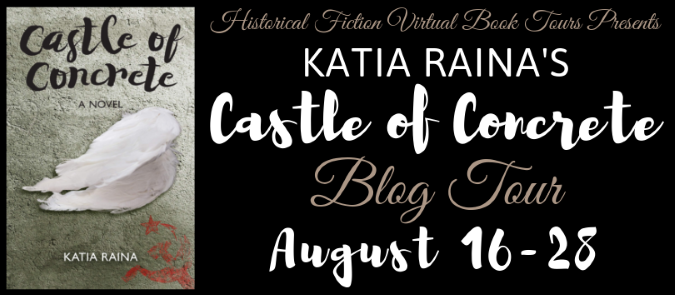
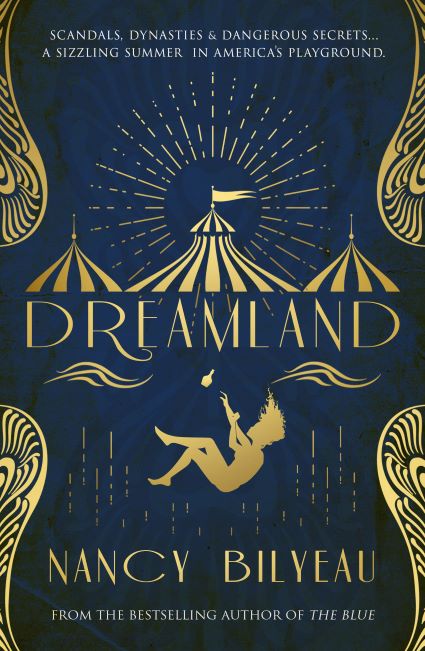

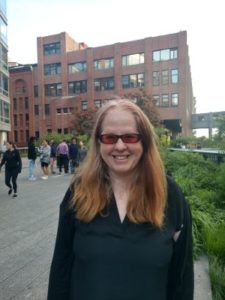 "Dreamland" is Nancy Bilyeau's fifth novel of historical suspense. She is the author of the best-selling historical thriller “The Blue” and the Tudor mystery series “The Crown,” “The Chalice,” and “The Tapestry,” on sale in nine countries.
"Dreamland" is Nancy Bilyeau's fifth novel of historical suspense. She is the author of the best-selling historical thriller “The Blue” and the Tudor mystery series “The Crown,” “The Chalice,” and “The Tapestry,” on sale in nine countries. "Dreamland" is Nancy Bilyeau's fifth novel of historical suspense. She is the author of the best-selling historical thriller “The Blue” and the Tudor mystery series “The Crown,” “The Chalice,” and “The Tapestry,” on sale in nine countries.
"Dreamland" is Nancy Bilyeau's fifth novel of historical suspense. She is the author of the best-selling historical thriller “The Blue” and the Tudor mystery series “The Crown,” “The Chalice,” and “The Tapestry,” on sale in nine countries.




